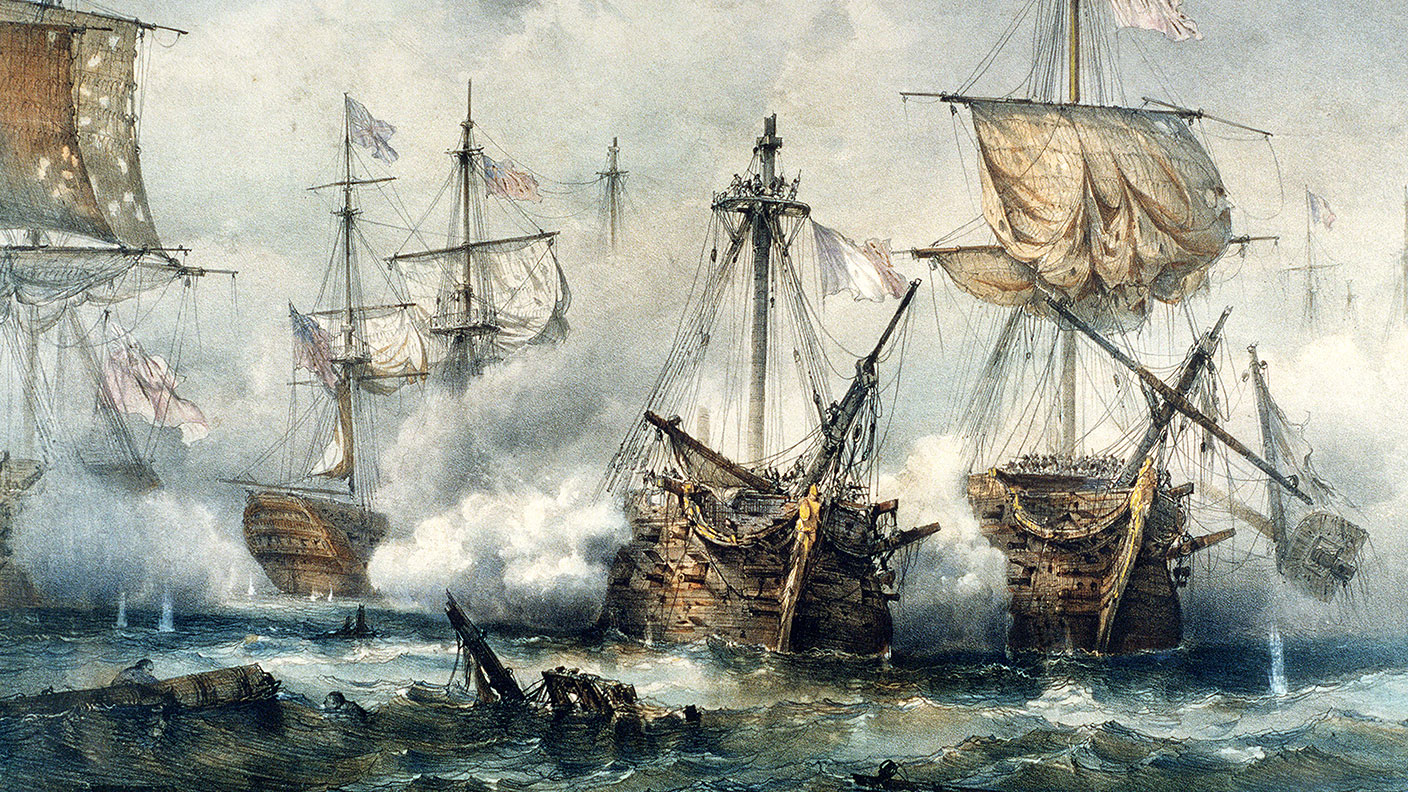
Get the latest financial news, insights and expert analysis from our award-winning MoneyWeek team, to help you understand what really matters when it comes to your finances.
You are now subscribed
Your newsletter sign-up was successful
Want to add more newsletters?

Twice daily
MoneyWeek
Get the latest financial news, insights and expert analysis from our award-winning MoneyWeek team, to help you understand what really matters when it comes to your finances.

Four times a week
Look After My Bills
Sign up to our free money-saving newsletter, filled with the latest news and expert advice to help you find the best tips and deals for managing your bills. Start saving today!
After the French Revolution, Europe saw 20-odd years of almost constant war as Napoleon and his armies went on a conquering spree around the continent. By 1805, France pretty much ruled Europe. But Britain ruled the waves.
Boney wanted to invade Britain. To do that, he had to take control of the English Channel long enough to get his troops across – 93,000 of them were waiting in and around Boulogne. But Britain had blockaded most of his ports with his ships in them.
After a while, Napoleon gave up on invading Britain and his army headed east. On 19 October, Napoleon ordered Admiral Pierre-Charles Villeneuve, in charge of the joint French and Spanish fleet, to break out of Cadiz and head for Naples. But the British fleet was waiting, and shadowed the French and Spanish ships down the coast, keeping out of sight. On 21 October, British admiral Horatio Nelson attacked.
MoneyWeek
Subscribe to MoneyWeek today and get your first six magazine issues absolutely FREE

Sign up to Money Morning
Don't miss the latest investment and personal finances news, market analysis, plus money-saving tips with our free twice-daily newsletter
Don't miss the latest investment and personal finances news, market analysis, plus money-saving tips with our free twice-daily newsletter
Traditionally, enemy fleets would face each other in parallel lines. Nelson's strategy was to arrange his ships in two smaller squadrons at right angles to the enemy – one column lead by Nelson in HMS Victory, captained by Thomas Hardy; the other by Admiral Cuthbert Collingwood in HMS Royal Sovereign. That way, Nelson hoped to get in among the enemy and spread confusion from the outset. It left them vulnerable to enemy fire as they approached, but allowed them to rake the enemy fire along the length of the ships, causing huge damage.
Collingwood's ship was the first to engage. Nelson soon followed, engaging with three ships, one of which was the Redoubtable, carrying a complement of well-trained musketeers. It was a bullet from one of these that hit Nelson in the chest, mortally wounding him. He died later that day, after uttering the immortal line, "Kiss me, Hardy".
In total, 33 enemy ships were lost. No British ships were sunk, but 430 British sailors were killed, along with 4,408 French and Spanish sailors. The crushing victory ensured Britain would enjoy mastery of the seas for the next hundred years.
Get the latest financial news, insights and expert analysis from our award-winning MoneyWeek team, to help you understand what really matters when it comes to your finances.

-
 Should you buy an active ETF?
Should you buy an active ETF?ETFs are often mischaracterised as passive products, but they can be a convenient way to add active management to your portfolio
-
 Power up your pension before 5 April – easy ways to save before the tax year end
Power up your pension before 5 April – easy ways to save before the tax year endWith the end of the tax year looming, pension savers currently have a window to review and maximise what’s going into their retirement funds – we look at how
